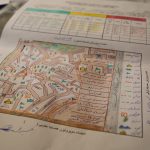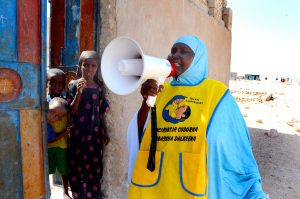
© GPEI
Fast Facts
Population: 195.8M (2018)
- Polio Status: Was endemic until 25th August 2020 when Nigeria was officially certified free of wild poliovirus (WPV)
- Polio added to the vaccine schedule: 1979 (OPV), 2014/2015 (IPV) [note: 2014- IPV campaigns only; 2015 IPV via RI]
- OPV3 Coverage: 57% (2018)
- IPV Coverage: 57% (2018)
Timeline
1979
The Nigerian Expanded Programme on Immunization (EPI) is initiated in 1979. Some progress toward Universal Child Immunization is made in the 1980s, but is followed by a significant decline in the 1990s.
1988
The World Health Assembly passes a resolution to eradicate polio by the year 2000, launching the Global Polio Eradication Initiative.
2003
Local Imams, traditional leaders, and politicians declare a polio campaign boycott in Kano state; public confidence in oral poliovirus (OPV) diminishes and supplementary immunization activities (SIAs) are temporarily suspended.
2008
Between 2008-2013, ongoing transmission in Nigeria leads to the importation of poliovirus in more than 20 previously polio-free countries, and a resurgence of cases is experienced in 2011. During this time, ongoing resistance threatens the initiative, and leads to the murder of 13 vaccinators in Kano and Borno states.
2012
The National Emergency Operation Centre (EOC) is established in Abuja.
2014
With the GPEI now in its endgame phase, Nigeria sees an influx of funding and intensification of activities, including the establishment of an accountability framework, expansion of routine immunization, and introduction of Inactivated Polio Vaccine (IPV).
2016
Two cases of WPV2 are detected in Borno State, a setback after the WHO had removed Nigeria from the polio-endemic list in the previous year.
2020
In August, Nigeria is officially certified as WPV-free along with the entire African region.
Country Data
Nigeria is one of three remaining polio endemic countries in the world, currently affected by circulating vaccine-derived poliovirus type 2 (cVDPV2), including 18 cases reported in 2019. Between 2018 and 2020 cVDPV2 outbreaks have been detected in Sokoto, Yobe, Gombe and Jigawa states. After seeing no new cases of wild poliovirus (WPV) in 2015, Nigeria experienced an outbreak of four cases in 2016 in Borno State. In August 2020, however, Nigeria celebrated four years without a WPV case, and it has been removed from the list of countries which are WPV-endemic.
Vaccination against polio in Nigeria has been organized under a number of different bodies over the last several decades, including early campaigns to address polio incidence among expatriates (1956), national introduction of the polio vaccine via the Expanded Program on Immunization (1979, renamed the National Program on Immunization in 1995), and delivery through Immunization Plus Days (2006). Since 2012, the Presidential Task Force has led the country’s response to polio through the use of Emergency Operations Centers (EOCs), a joint collaboration between the National Primary Health Care Development Agency (NPHCDA) under the Ministry of Health and GPEI partners. Nigeria continues to receive external support from the GPEI and Gavi, the Vaccine Alliance to support immunization activities.
Organization Description
The University of Ibadan is the oldest university in Nigeria which was initially established as the University College Ibadan (UCI) in 1948 as an external campus of the University of London. UCI transformed to the University of Ibadan in 1962. The Faculty of Medicine was one of the three foundation faculties of UCI and later became the College of Medicine in August 1980. The College consists of four faculties: Basic Medical Sciences, Clinical Sciences, Dentistry, and Public Health, and these are made up of 34 departments. There are also four institutes namely: Institute for Advanced Medical Research and Training, Institute for Cardiovascular Diseases, Institute of Child Health, and Institute of Infectious Diseases. The Management team of the institution comprises of the Provost, Deputy Provost, the deans of the four faculties, the Medical Librarian, and the Secretary of the College.
The College of Medicine, University of Ibadan offers a number of undergraduate programmes including MBBS, BDS (Dentistry), as well as undergraduate and postgraduate courses in basic medical sciences, dentistry, biomedical sciences and public health. It is the leading institution for undergraduate and postgraduate training in the biomedical and health sciences in Nigeria.
Page updated on: 20/09/2020
Key Documents
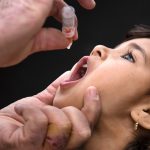
What can over 30 years of efforts to eradicate polio teach us about global health?a country profile
View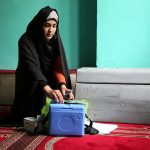
Synthesis and translation of research and innovations from polio eradication (STRIPE): initial findings from a global mixed methods study
View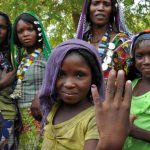
Evaluating the process of partnership and research in global health: reflections from the STRIPE project
View